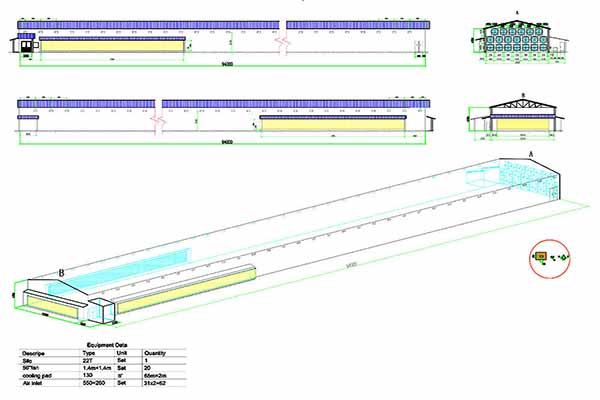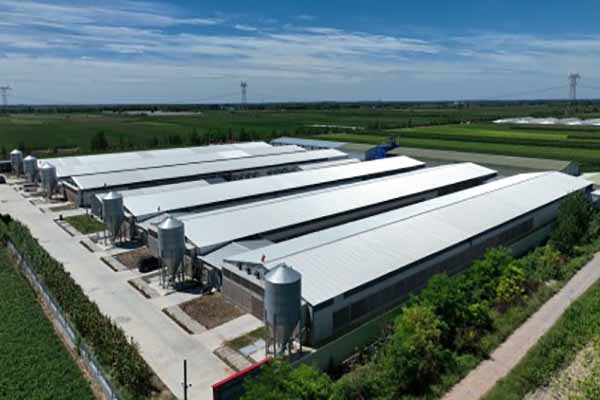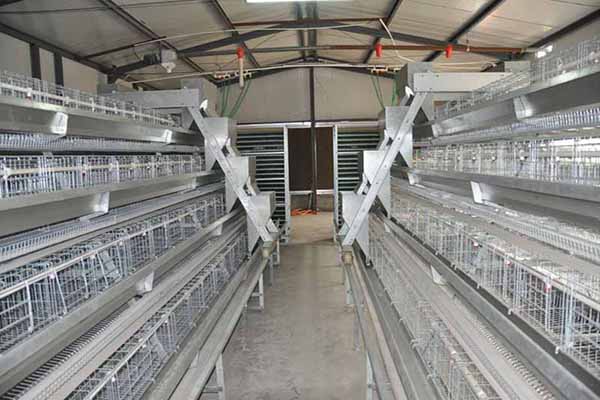How to Start a Small Chicken Farm Business: A Comprehensive Guide
Time : 2025-06-27
Starting a small chicken farm business can be a rewarding venture, offering both economic opportunities and the joy of raising animals. However, it’s essential to approach it with a clear plan and a good understanding of the industry. This guide will walk you through the key steps to get your small chicken farm business up and running.
1. Research and Planning
The first step in starting any business is thorough research. Here are some critical aspects to consider:
1.1 Market Research
Understand the demand for chicken products in your area. Investigate local markets, competition, and consumer preferences. This will help you determine the type of chicken farm business that will be most successful in your location.
1.2 Business Plan
Develop a comprehensive business plan that includes financial projections, marketing strategies, and operational procedures. A well-written business plan will serve as a roadmap for your business and may be required if you seek financing.
2. Legal and Regulatory Compliance
Ensure that your small chicken farm complies with all local, state, and federal regulations. This includes obtaining necessary licenses and permits, adhering to biosecurity protocols, and understanding food safety regulations.
2.1 Permits and Licenses
Contact your local government to find out the specific permits and licenses required for operating a chicken farm. This may include a farm license, environmental permit, and food handler’s permit.
2.2 Biosecurity
Biosecurity is crucial to prevent disease outbreaks. Implement measures such as separating sick birds from healthy ones, maintaining clean and disinfected facilities, and limiting access to the farm.
3. Choosing the Right Location
The location of your chicken farm can significantly impact its success. Consider the following factors:
3.1 Proximity to Markets
Choose a location that is easily accessible to your target market, such as local grocery stores, restaurants, or farmers’ markets.
3.2 Zoning Regulations
Ensure that your chosen location complies with local zoning laws, which may restrict agricultural activities in certain areas.
3.3 Infrastructure
Consider the availability of water, electricity, and transportation facilities near your chosen location.
4. Building Your Chicken Coop
A well-designed chicken coop is essential for the health and well-being of your flock. Here are some key considerations:
4.1 Size and Layout
Design a coop that is spacious enough to accommodate your chickens comfortably. Consider the number of birds you plan to raise and ensure there is enough space for nesting boxes, roosting bars, and feed and water stations.
4.2 Ventilation and Temperature Control
Good ventilation is crucial to prevent ammonia buildup and respiratory issues. Additionally, ensure your coop can handle temperature fluctuations, especially during extreme weather conditions.
4.3 Materials and Construction
Choose durable materials that are resistant to predators and weather. A solid foundation, secure fencing, and a weatherproof roof are essential.
5. Equipment and Supplies
Investing in quality equipment and supplies is essential for the success of your chicken farm. Here are some must-have items:
5.1 Feeding and Watering Systems
Automated feeding and watering systems can save time and ensure that your chickens have access to food and water at all times.
5.2 Egg Collection Equipment
Consider investing in an automated egg collection system to streamline the process and reduce the risk of cracked eggs.
5.3 Health and Welfare Supplies
Keep a well-stocked supply of medications, vitamins, and supplements to maintain the health of your flock.

6. Managing Your Flock
Proper flock management is crucial for the success of your chicken farm. Here are some key considerations:
6.1 Breeding and Genetics
Choose the right breed of chickens based on your goals, whether it’s for egg production, meat, or show. Consider factors such as growth rate, egg-laying ability, and temperament.
6.2 Health and Disease Prevention
Implement a preventive healthcare program, including regular vaccinations, deworming, and monitoring for signs of illness.
6.3 Behavior and Welfare
Understand a nd address the behavior and welfare needs of your chickens to create a healthy and productive environment.
nd address the behavior and welfare needs of your chickens to create a healthy and productive environment.
7. Marketing and Sales
Develop a marketing strategy to reach your target market and sell your chicken products effectively.
7.1 Branding
Create a strong brand identity that resonates with your target audience. This includes a memorable logo, packaging, and a consistent message across all marketing channels.
7.2 Distribution Channels
Identify the most effective distribution channels for your products, whet her it’s direct sales, wholesale, or through local markets.
her it’s direct sales, wholesale, or through local markets.
7.3 Sales and Marketing Tactics
Implement a variety of sales and marketing tactics, such as social media marketing, farm tours, and partnerships with local businesses.
8. Financial Management
Sound financial management is essential for the sustainability of your chicken farm business.
8.1 Budgeting
Develop a detailed budget that includes all your startup costs, ongoing expenses, and revenue projections.
8.2 Record Keeping
Keep accurate records of all financial transactions, including income, expenses, and taxes. This will help you track your business’s performance and make informed financial decisions.
8.3 Financial Planning
Seek financial advice to help you plan for future investments, expansion, and unforeseen expenses.
Conclusion
Starting a small chicken farm business requires careful planning, dedication, and a deep understanding of the industry. By following this comprehensive guide, you’ll be well on your way to establishing a successful and sustainable chicken farm.











